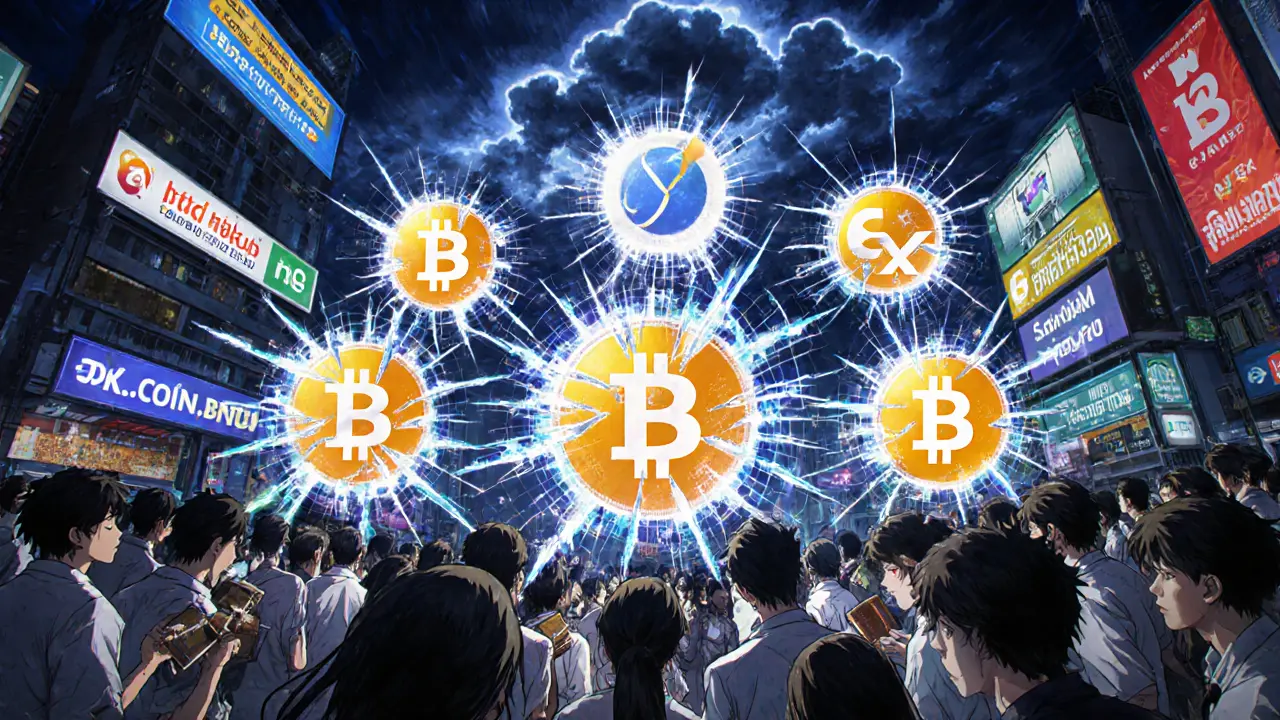

When you hear SEC Thailand, the Securities and Exchange Commission of Thailand, the government body that oversees financial markets and enforces crypto rules in the country. It's not just another regulator — it's the gatekeeper for anyone trading, mining, or holding digital assets inside Thailand. Unlike some places where crypto is ignored or banned, Thailand has taken a clear path: regulate, license, and monitor. That means if you're using Binance, MEXC, or any local exchange from Thailand, you're already under its watch.
Crypto exchanges, platforms where users buy, sell, or trade digital assets like Bitcoin or meme coins. Also known as digital asset trading platforms, they must now register with SEC Thailand to operate legally. That’s why you see platforms like LCX or Sovryn being reviewed here — not because they’re the biggest, but because they’re the ones that actually follow the rules. And when a project like DSG token or VIKC claims to offer an airdrop, SEC Thailand’s stance matters: if it’s unregistered, it’s likely illegal — and you could be on the hook for taxes or penalties even if you didn’t know.
Airdrops, free token distributions often used to bootstrap new projects. Also known as token giveaways, they’re popular in Thailand because they feel like free money. But SEC Thailand doesn’t care if it’s free — if the token has value, it’s a security. That’s why nearly every airdrop listed here — from NFTLaunch to Dinosaureggs — is a red flag. No team, no product, no license? That’s not innovation. That’s a violation waiting to happen.
And it’s not just about exchanges or airdrops. Crypto mining, the process of validating blockchain transactions and earning rewards. Also known as blockchain validation, it’s taxed as income under SEC Thailand’s rules. If you’re mining Bitcoin or Ethereum from your home in Bangkok, you owe taxes — and you need records. The same goes for staking BETH or trading STRNGR. Every gain, every swap, every withdrawal is tracked. No one’s auditing you yet — but they will.
Thailand’s approach is practical. It’s not trying to kill crypto. It’s trying to stop scams, protect investors, and bring order to chaos. That’s why you’ll find posts here about fake tokens like RONDA or DOGEGROK — they don’t just suck money, they break the law. And when SEC Thailand cracks down, it doesn’t just shut down websites. It goes after wallets. It freezes accounts. It names names.
What you’ll find below isn’t a list of hype. It’s a collection of real cases — scams exposed, rules broken, warnings ignored. Every post here ties back to one truth: if you’re active in crypto and you’re in Thailand, SEC Thailand is your invisible partner. Ignore it, and you’re playing with fire. Understand it, and you’re one step ahead of the crowd.

Thailand banned five major foreign P2P crypto platforms in 2025 to fight fraud and money laundering. Only licensed local exchanges can now operate, forcing users to switch and reshaping the country's digital finance future.